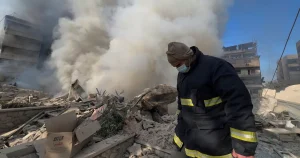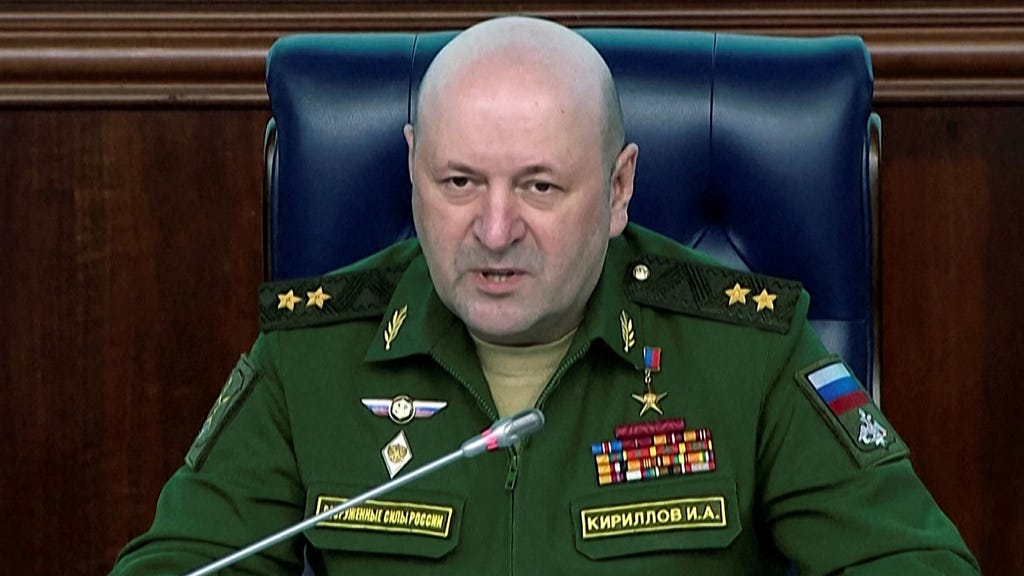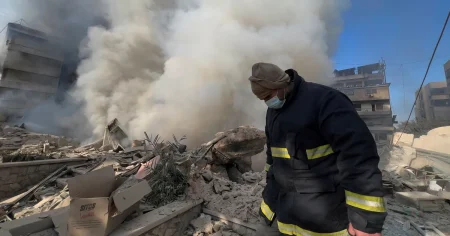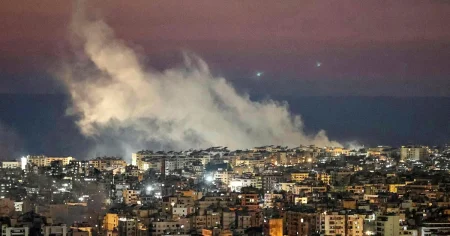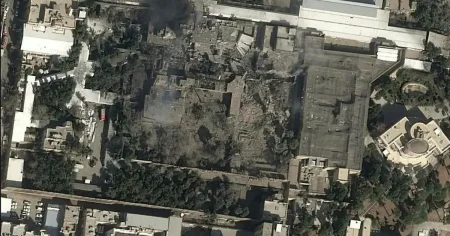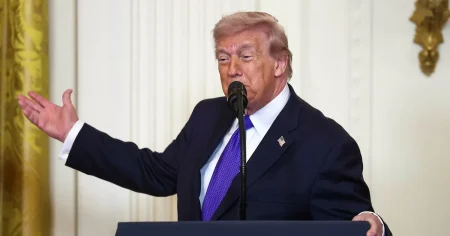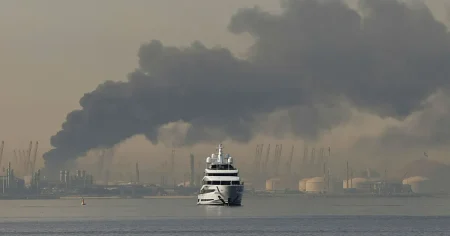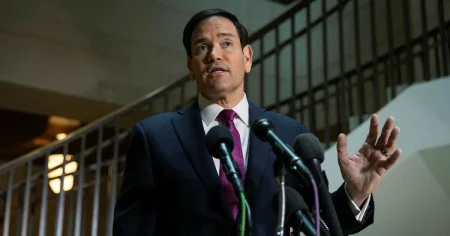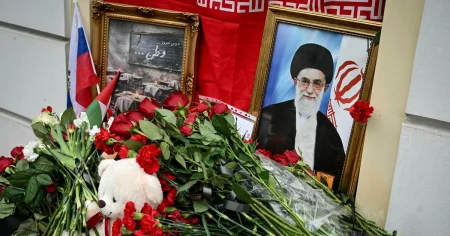The untimely death of Russian Lieutenant General Igor Kirillov, head of the Russian military’s chemical, biological, radiological, and nuclear (CBRN) defense forces, and his assistant in a car bomb explosion in eastern Moscow has sent shockwaves through international circles. The incident, occurring just a day after Kirillov was indicted in Ukraine for the alleged use of prohibited chemical weapons, raises immediate questions about the circumstances surrounding his demise. While Russian investigators have confirmed the explosion and attributed it to a device planted in a delivery vehicle, the timing and nature of the attack inevitably fuel speculation about potential connections to Kirillov’s professional activities and the ongoing conflict in Ukraine.
Kirillov’s career trajectory paints a picture of a dedicated military officer with deep expertise in CBRN warfare. Graduating from the Kostroma Military Academy in 1991 with a specialization in chemical weapons, he served four years in Germany following the collapse of the Soviet Union, eventually commanding a chemical weapons brigade. His ascension to the head of Russia’s CBRN defense in 2017 underscored his significant experience and knowledge in this highly sensitive field. His death represents a substantial loss of expertise for the Russian military and removes a key figure in their CBRN defense apparatus.
The explosion, which took place on Ryazansky Prospekt outside a residential building, was powerful enough to shatter windows up to the fourth floor, highlighting the lethal nature of the attack. Russian authorities, through state news agency TASS, have confirmed that a preliminary investigation points towards a targeted assassination, with the explosive device strategically placed within a delivery vehicle. The precision and sophistication of the operation suggest a well-planned and executed attack, potentially carried out by individuals with significant operational capabilities.
The timing of the explosion, occurring just one day after Kirillov’s indictment in Ukraine for the alleged use of chemical weapons, inevitably generates suspicion and speculation. While there is no immediate confirmation of a direct link between the indictment and the assassination, the close proximity of the two events raises questions about potential retaliatory motives. The indictment itself underscores the gravity of the accusations against Kirillov, alleging his involvement in the use of internationally prohibited chemical weapons, a serious war crime under international law.
The implications of Kirillov’s death extend beyond the immediate loss of a high-ranking military official. His deep involvement in Russia’s CBRN defense program raises concerns about the potential destabilizing effects of his absence, particularly in the context of the ongoing conflict in Ukraine. The attack also highlights the escalating tensions and risks associated with the conflict, demonstrating a willingness to target high-profile individuals directly linked to the war effort.
The investigation into Kirillov’s death will be closely watched by international observers, as it could shed light on the motivations behind the attack and potentially reveal the actors involved. The incident underscores the volatile and unpredictable nature of the current geopolitical landscape and serves as a stark reminder of the human cost of conflict. It also raises critical questions about the security of individuals involved in sensitive military programs and the potential for targeted attacks in the midst of international tensions. The international community will be looking for a thorough and transparent investigation to determine the full circumstances surrounding Kirillov’s death and to hold those responsible accountable.




